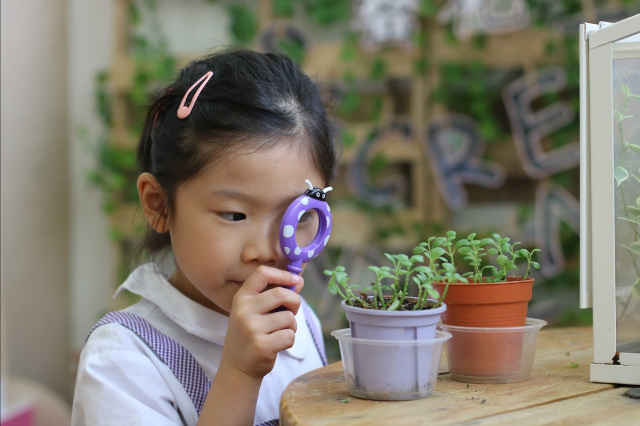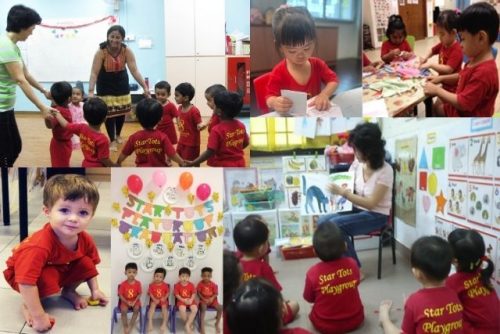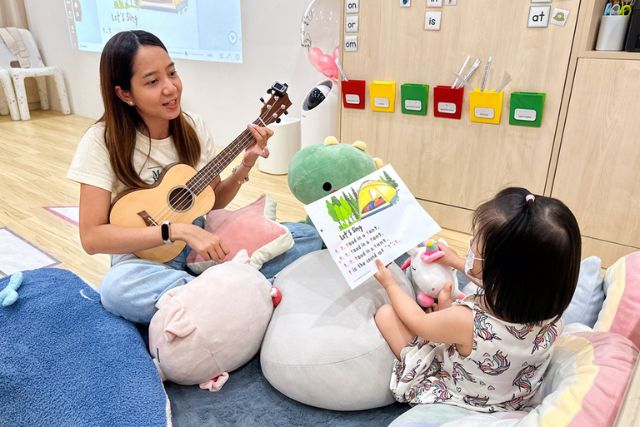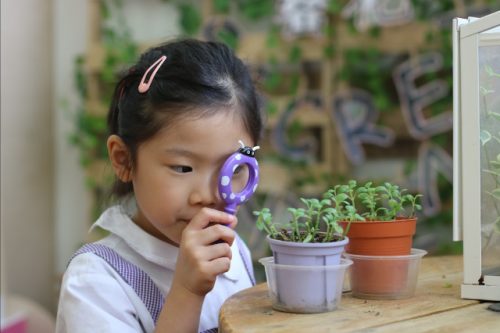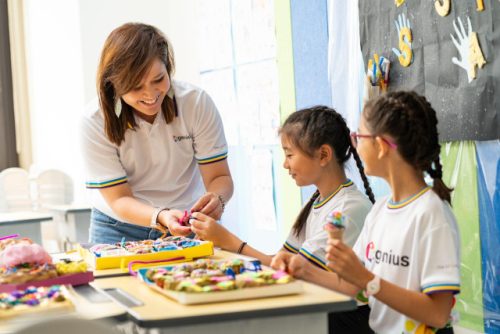Emphasising on the effectiveness of active mediation and interactive play, Play Beyond The Screen seeks to combat health risks of excessive screen time for children aged 1-5 years.
Screen time is steadily on the rise as young children grow up in a more digitally-connected environment. However, the excessive and unregulated usage of screen time is found to be linked with the delayed development of young children. Play Beyond The Screen, a pioneering communications campaign helmed by four final-year undergraduates at Nanyang Technological University seeks to encourage and empower parents to manage young children’s screen device use through active mediation and interactive play.
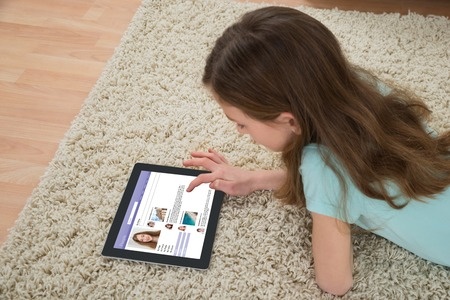
The Growing Up in Singapore Towards healthy Outcomes (GUSTO) study reveals that children aged 1 watch an average of 1.9 hours of television and nearly 50% of toddlers aged 2-3 engage in more than 2 hours of screen time per day. This is a pressing concern, given that the American Academy of Paediatrics recommends that children under 18 months should avoid the use of screen media except video-chatting and children aged 2-5 years should watch only 1 hour per day of high-quality programs.
In a survey conducted by the team with over 300 parents of children aged 1-5 years, 72.5% were aware of the negative association between myopia and excessive screen time. However, associations of language delay (28.3%) and inattention problems (58.8%) were less commonly known, highlighting the need to bridge this knowledge gap.
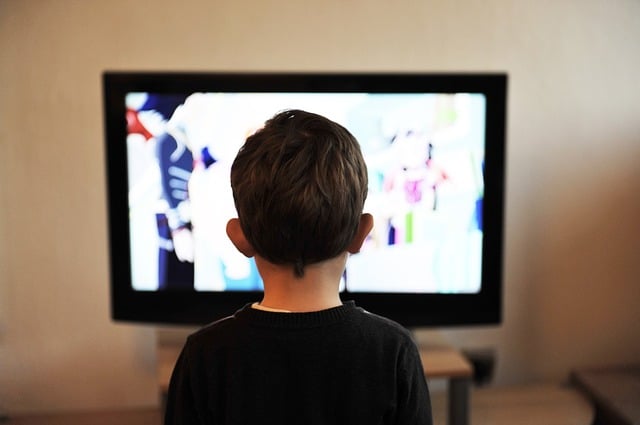
“Children thrive and develop with daily human engagement that encourages their motor, language and social development. Screen time in very young children (less than 1.5 years old) can have negative consequences to their development especially in language and attention.” said Dr Aishworiya Ramkumar, Consultant at the Child Development Unit of the Division of Developmental and Behavioural Paediatrics at National University Hospital.
“This can happen through the ‘displacement effect’ with other age-appropriate activities being replaced by screen time as well as through the stimulating and rapidly changing nature of media.”
Despite the negative health concerns, the team found that parents use digital devices as a convenient way to engage their children. 49.8% of respondents reported that handheld smart devices help to keep their child entertained when they are busy with other commitments.
This drove the team to introduce practical tips and alternative forms of play for parents to manage children’s screen time, with the emphasis to actively mediate their child’s digital content. The campaign provides bite-sized information on the association of excessive screen time with myopia, language delay and inattention problems in young children.
⇒ Related Read: How To Control Myopia In Children And Adults
“In a digital age, it is not uncommon to see young children on screens during mealtimes and family gatherings. Play Beyond The Screen was inspired by our very own nieces and nephews and their unregulated usage of screen time.” said Amelia Lim, member of Play Beyond The Screen.
“The goal of our campaign is not to demonise digital devices but to encourage parents who are the first educators in their children’s lives to use technology effectively and in an interactive manner.”
Play Beyond The Screen has taken to social media platforms to increase parents’ knowledge levels of the associated health concerns and offer screen-free alternatives such as themed-printables and craft tutorials that parents can adopt to engage their children. The campaign encourages parents to take a customisable screen-free pledge as a call-to-action to kickstart their screen-free commitment. To date, over 450 parents have taken the screen-free pledge.
On-ground, the team has run two-panel discussion cum children’s workshop events at Lifelong Learning Institute and Central Public Library that serves as a physical touchpoint for screen-free play and to facilitate parents’ discussion about managing screen time for their children.
In light of the COVID-19 outbreak, Play Beyond The Screen introduced 700 Stay-Home Play Kits consisting of 4 craft materials, print collaterals on parenting in a digital age and a one-of-a-kind Screen-Free Adventures Reward Card Deck for parents to engage their children at home.
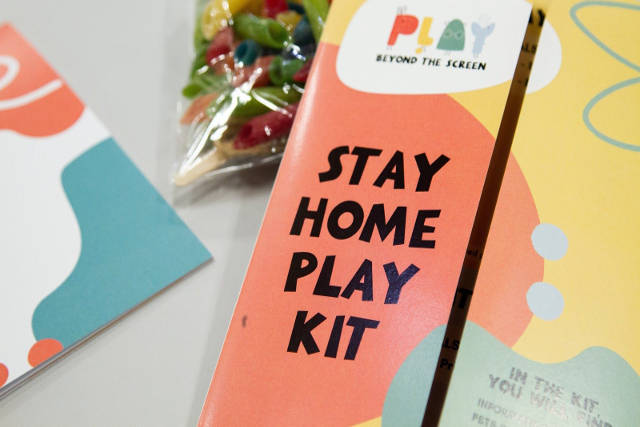
“Parenting in the digital age is tough especially when the use of technology has become both a habit and a necessity to manage work and family life. Play Beyond The Screen is a good initiative to raise parents’ awareness about healthy concepts of digital use and how to teach those skills to their children,” said Ms Jasmine Yeo, Principal Psychologist at SBCC Child Development. “It goes beyond education and also covers active mediation as well as alternative ways of connecting with your child.”
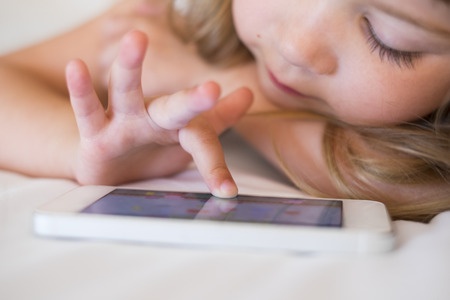
Play Beyond The Screen is sponsored by Our Singapore Fund, Central Singapore CDC, the Young Changemakers (YCM) grant administered by the National Youth Council and Singapore Kindness Movement. The campaign is further supported by National University Hospital, SBCC Child Development, National Library Board, Plano Pte Ltd, the company behind the science-based parental control and eye health app Plano and Silicon Valley-inspired Trehaus Preschool.
Here are three other reasons why encouraging a better management of screen time in Singapore is important:
1. Many exceed the recommended screen time guidelines
- The American Academy of Pediatrics recommends no screen time for children below 18 months, and 1 hour for children between 2 to 5
- However, even before learning how to speak, 1-year olds are already spending an average of 1.9 hours on screen-viewing
- Half of 2 and 3 year olds spend more than 2 hours on the screen per day, with 1 in 5 spending more than 4 hours per day

2. Lack of awareness of associated health concerns, especially with regards to language delay
- Only 1 in 4 parents surveyed polled language delay to be associated with increased screen time
- While digital content can help to improve a child’s language abilities in older children, many also overlook the fact that excessive and passive screen viewing does not stimulate interactive learning in very young children as they are unable to relate the context of media contents to real life
3. Interactive play is important for young developing children
- In their formative years, young children require sensory activities as they are not conditioned to engage in abstract thinking from screen device use
- Direct experience with interactions and toys can facilitate a child’s mastery of sensory and motor skills, gradually developing problem-solving, imagination and social skills
⇒ Related Read: 5 Problems Parents Can Teach Kids To Solve On Their Own
FACTSHEET
What is Screen Time?
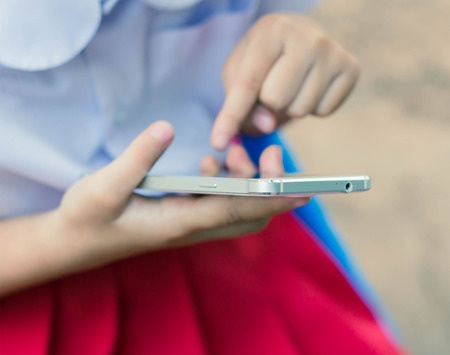
● Screen time refers to time spent on digital devices such as television, smart devices such as smartphones and tablets, computers, laptops and handheld game consoles.
Growing Up in Singapore Towards healthy Outcomes (GUSTO) Study
- Children aged 1 spend an average of 1.9 hours per day watching television1
- Children aged 2 spend an average of 2.4 hours per day on screens2
- Children aged 3 spend an average of 2.7 hours per day on screens2
- 50% of children aged 2-3 had more than 2 hours per day of screen time2
- 20% of children aged 2-3 had more than 4 hours per day of screen time2
Myopia in Association with Excessive Screen Time
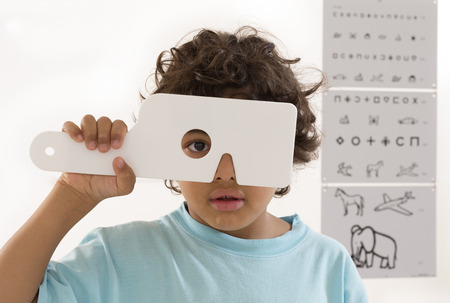
● Singapore has one of the highest rates of myopia in the world. The Singapore National Eye Centre states that more than 10% (11%) of Singaporean children aged 6-72 months have myopia before even starting primary school. This increases to 83%3 when they reach the age of 18.4
● High childhood myopia rate in Singapore is largely attributed to near-work activities done on digital devices such as mobile phones, iPads, computers and handheld gaming consoles.5
● Developing myopia early in life triples the chances of developing high myopia which6 can lead to many potentially-blinding eye conditions later in adulthood such as cataract, glaucoma, retinal tears and macular degeneration.
Speech and Language Delay in Association with Excessive Screen Time
● Speech and language delay refers to a child’s difficulty in understanding others (receptive speech and language) or expressing himself or herself (expressive speech and language).7
● Excessive and passive screen viewing does not stimulate interactive learning in young children as they are unable to relate the context of media contents to real-life situations on their own.8
● Increased passive screen viewing lowers the exposure to face-to-face verbal and play-based interactions. This may cause young children to experience difficulties in expressing themselves and communicating with others.
Inattention Problems in Association with Excessive Screen Time
● Inattention is the lack of focus on a given event or situation when it is required. It is a hallmark feature of Attention Deficit-Hyperactivity Disorder (ADHD).
● Excessive screen time is found to be highly associated with ADHD and ADHD-related behaviours including inattention problems, hyperactivity and impulsivity in young children.9
● Prolonged and constant use of digital devices lowers young children’s executive function skills, which include attentiveness. Executive function skills refer to a set of mental skills (working memory, cognitive thinking, and self-control) that helps children set goals, plan and get things done.10
● The fast-paced content on screens does not require a high level of attention from young children, which may shift their attention span into a “scanning-and-shifting mode” that will induce higher arousal. Over time, children may frequently seek activities of increasing levels of arousal, hence paying less attention to activities that require intense concentration such as schoolwork.10
The Importance of Active Mediation and Interactive Play
● Active mediation refers to:
- Setting screen time limits, with reference to the AAP recommended screen time guidelines
- Watching and discussing digital content together with your child
- Selecting high quality programmes for your child
● In their formative years, young children require interactive and sensory activities as they are not conditioned to engage in abstract thinking from screen device use.
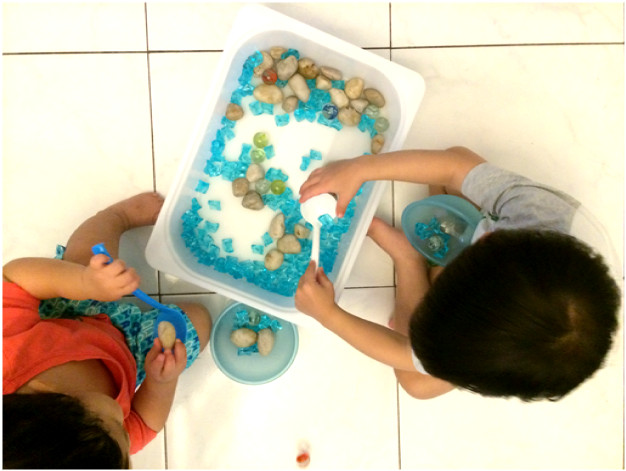
● Direct experience with toys can facilitate a child’s mastery of sensory and motor skills gradually developing problem-solving, imagination and social skills which cannot be achieved through digital devices.
1 Aishworiya R, Cai S, Chen HY, Phua DY, Broekman BFP, Daniel LM, et al. Television viewing and child cognition in a longitudinal birth cohort in Singapore: the role of maternal factors. BMC Pediatr. 2019;19(1):286.
2 Bernard JY, Padmapriya N, Chen B, Cai S, Tan KH, Yap F, et al. Predictors of screen viewing time in young Singaporean children: the GUSTO cohort. Int J Behav Nutr Phys Act. 2017;14(1):112.
3 M. Dirani et al., “Prevalence of refractive error in Singaporean Chinese children: the strabismus, amblyopia, and refractive error in young Singaporean Children (STARS) study,” (in eng), Invest Ophthalmol Vis Sci, vol. 51, no. 3, pp. 1348-55, Mar 2010.
4 Stop The Myopia Tsunami In Its Tracks. (2017). SingVision, [online] (2), p.6. Available at: snec.com.sg
5 Teo, J. (2019). What’s behind the high rate of childhood myopia?. The Straits Times.
6 S. Y. Chua et al., “Age of onset of myopia predicts risk of high myopia in later childhood in myopic Singapore children,” (in eng), Ophthalmic Physiol Opt, vol. 36, no. 4, pp. 388-94, Jul 2016.
7 Develop your Child’s Language Skills – icommunicate therapy. Retrieved from icommunicatetherapy.com
8 Babies and Toddlers Should Learn from Play, Not Screens. (2020). Retrieved from healthychildren.org
9 Nikkelen, S.W.C., Valkenburg, P.M., 2014. Media use and ADHD-related behaviors in children and adolescents: a meta-analysis. Dev. Psychol. 50 (9), 2228–2241. dx.doi.org.
10 Hutton, J., Dudley, J., Horowitz-Kraus, T., DeWitt, T., & Holland, S. (2019). Associations Between Screen-Based Media Use and Brain White Matter Integrity in Preschool-Aged Children. JAMA Pediatrics, e193869. doi: 10.1001/jamapediatrics.2019.3869
About Play Beyond The Screen
Play Beyond The Screen is a pioneering health communications campaign helmed by four final-year undergraduates from the Wee Kim Wee School of Communication and Information in Nanyang Technological University (NTU). The campaign aims to encourage parents with children aged 1-5 years to reduce and better manage their children’s screen time usage by providing useful resources and ideas, all in a bid to combat the negative health impacts of excessive screen time on young children’s development.
* * * * *
If you find this article useful, do click Like and Share at the bottom of the post, thank you.
Stay in touch! Subscribe to our Telegram here for our latest updates.





